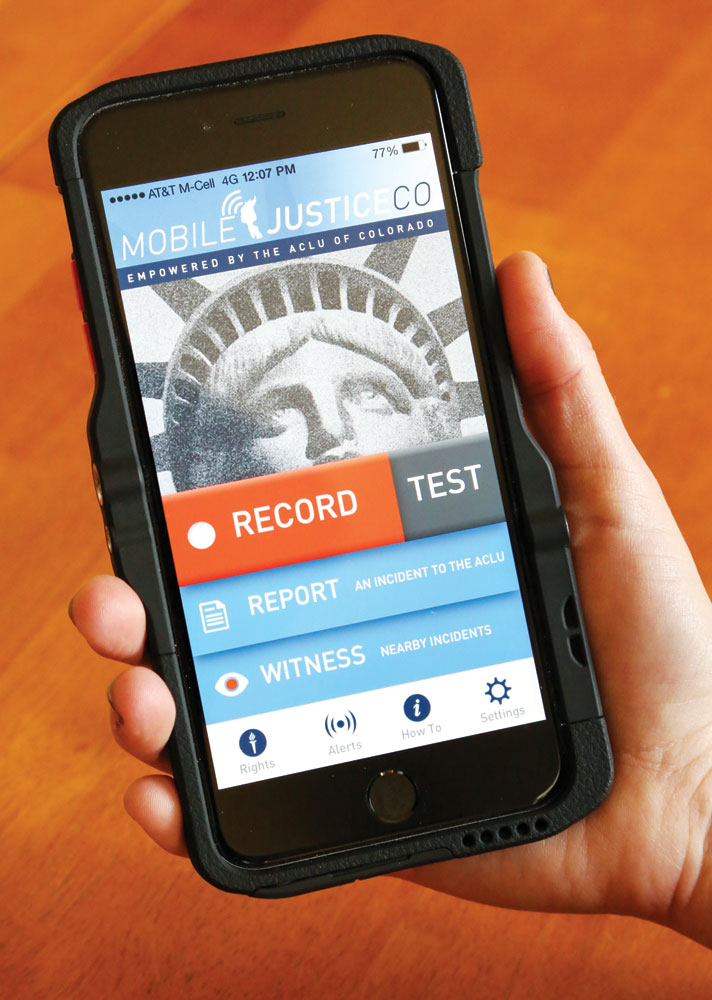
The Colorado Mobile Justice App allows users to record interactions with the police and upload directly to the ACLU server.
Video has been a game changer when it comes to police interactions. Now there is an app designed specifically to preserve documentation of these encounters.
The Colorado Mobile Justice App, released at the end of October, was developed by the American Civil Liberties Union of Colorado (ACLU Colorado) and allows users to upload videos directly to the ACLU server. The app exists in 10 versions customized for different states nationwide. Thousands of Colorado residents downloaded it within the first two days.
“When we have video we are closer to understanding the truth. The goal of all our work is to determine the truth and if there are violations against people’s rights,” says John Krieger, communications and outreach director for ACLU Colorado. He worked directly with the app developers.
One of the main reasons the ACLU of Colorado decided to develop the app for Colorado was the case of Ryan Brown. In March 2015, brothers Benjamin and Ryan Brown, who are African American, were pulled over for a cracked windshield, but it escalated quickly. Benjamin was arrested and Ryan was pulled out of the car and pushed face down in the snow, which was caught on film by Ryan. The officer threw Ryan’s phone but the video was salvaged. Later, upon review of the footage, the ACLU says the brothers cooperated just fine and the two were released of charges for resisting and public interference with a public official and driving with obstruction of view.
“The concerning part is that the officer did not recall doing any of that. People’s memories change, so the app holds everyone accountable,” Krieger says.
The Colorado Mobile Justice app has four main features:
Record and Submit Videos
Users can record and submit videos directly to the ACLU server. Videos are also automatically saved on your phone, but if deleted, always remain on the ACLU server.
“Know Your Rights”
The “Know Your Rights” guide provides information about what you can and cannot legally do during an interaction with a police officer. Recording a video is within legal rights, although part of this section also discusses how to safely keep a distance to not further escalate a situation.
Witness Function
A user has the option to turn on their GPS, which tracks their location, and can press “Witness,” alerting other nearby app users where you are and that you need a witness. The bystander can come to the location and record to provide secondary evidence. This feature was designed with protests in mind where there may be several app users in one location.
Updates
The app provides information about what ACLU does in Colorado and upcoming events.
Lt. Bob Wyckoff of District 5, who normally speaks with great enthusiasm, had little to say about the app. “We [police] always have to be watched and recorded. There is a segment of society that will always believe we need to be recorded.” Unfortunately, part of police work is sometimes negative and could be taken out of context, he explains.
Wyckoff has led an effort to increase police transparency by hosting meetings to answer questions and going out in the neighborhood to introduce himself and fellow officers.
“If you want to record an officer, that is fine, you are totally within your rights to do that. What I encourage people to do is not go beyond that and interfere with an officer when he or she is out conducting their business on the street. By that I mean, injecting yourself in the situation and questioning the officer.”




0 Comments